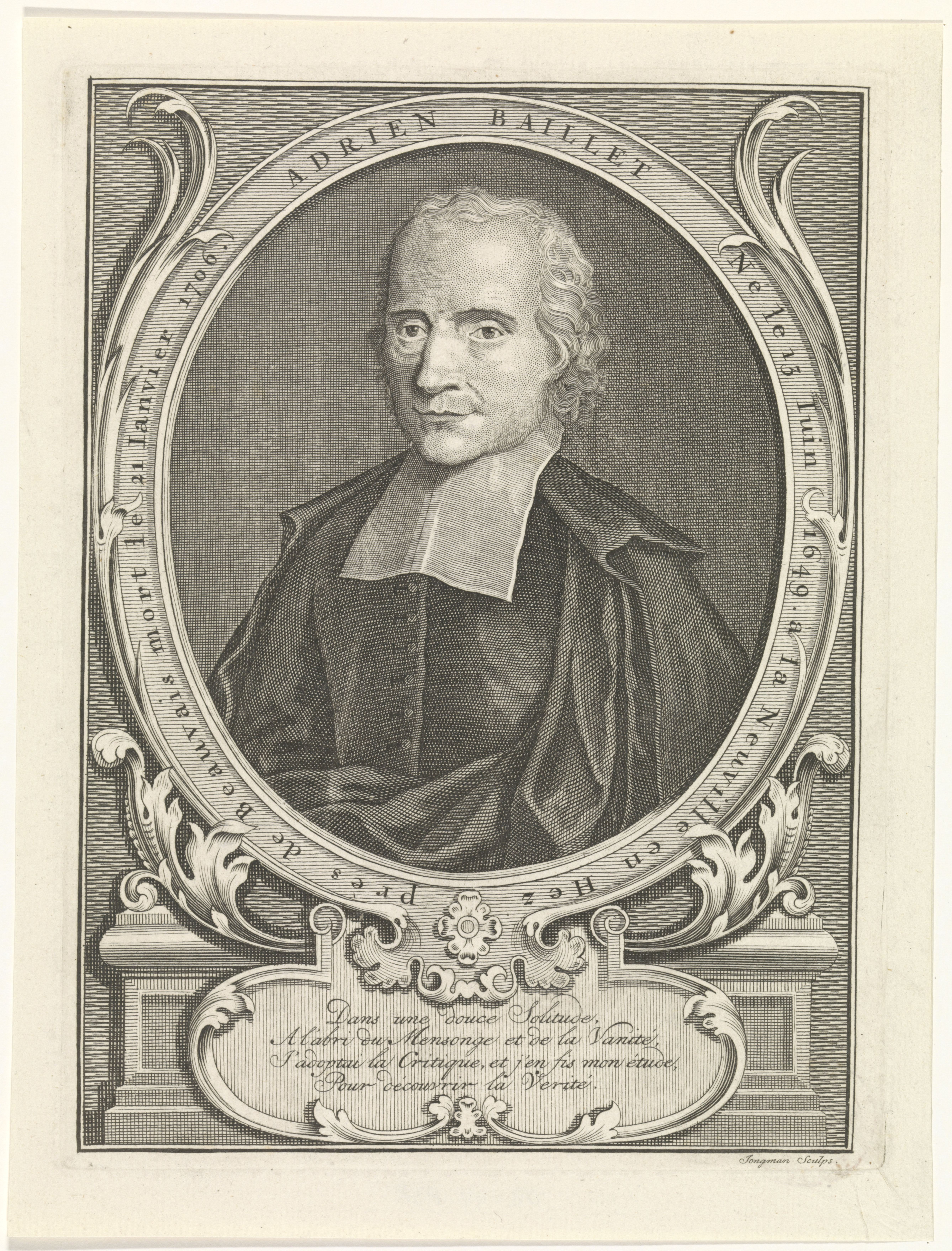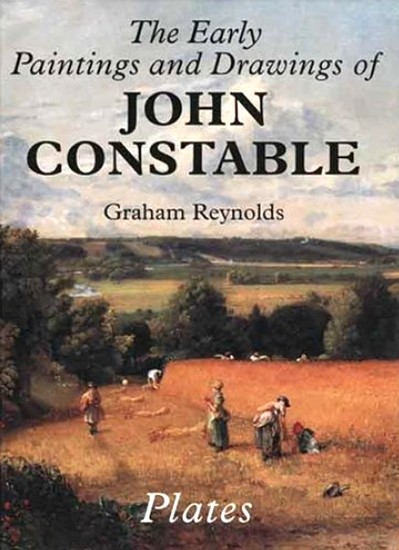|
Adrien Baillet
Adrien Baillet (13 June 164921 January 1706) was a French scholar and critic. He is now best known as a biographer of René Descartes. Life He was born in the village of Neuville near Beauvais, in Picardy. His parents could only afford to send him to a small school in the village, but he picked up some Latin from the friars of a neighbouring convent, who brought him under the notice of the bishop of Beauvais. By his kindness Baillet received a thorough education at the theological seminary, and was afterwards appointed to a post as teacher in the college of Beauvais. In 1676 he was ordained priest and was presented to a small vicarage. The article contains this footnote: See the edition by M. de la Monnoye of the ''Jugemens des savans'' (Amsterdam, 4 vols. 1722), which contains the ''Anti-Baillet'' of Gilles Ménage, and an ''Abrégé de la vie de Mr Baillet''. He accepted in 1680 the appointment of librarian to François-Chrétien de Lamoignon, advocate-general to the parleme ... [...More Info...] [...Related Items...] OR: [Wikipedia] [Google] [Baidu] |
Cogito, Ergo Sum
The Latin , usually translated into English as "I think, therefore I am", is the " first principle" of René Descartes's philosophy. He originally published it in French as , in his 1637 ''Discourse on the Method'', so as to reach a wider audience than Latin would have allowed. It later appeared in Latin in his '' Principles of Philosophy'', and a similar phrase also featured prominently in his ''Meditations on First Philosophy''. The dictum is also sometimes referred to as the cogito. As Descartes explained in a margin note, "we cannot doubt of our existence while we doubt." In the posthumously published ''The Search for Truth by Natural Light'', he expressed this insight as ("I doubt, therefore I am — or what is the same — I think, therefore I am").. Antoine Léonard Thomas, in a 1765 essay in honor of Descartes presented it as ("I doubt, therefore I think, therefore I am"). Descartes's statement became a fundamental element of Western philosophy, as it purported to ... [...More Info...] [...Related Items...] OR: [Wikipedia] [Google] [Baidu] |
French Classical Scholars
French (french: français(e), link=no) may refer to: * Something of, from, or related to France ** French language, which originated in France, and its various dialects and accents ** French people, a nation and ethnic group identified with France ** French cuisine, cooking traditions and practices Fortnite French places Arts and media * The French (band), a British rock band * "French" (episode), a live-action episode of ''The Super Mario Bros. Super Show!'' * ''Française'' (film), 2008 * French Stewart (born 1964), American actor Other uses * French (surname), a surname (including a list of people with the name) * French (tunic), a particular type of military jacket or tunic used in the Russian Empire and Soviet Union * French's, an American brand of mustard condiment * French catheter scale, a unit of measurement of diameter * French Defence, a chess opening * French kiss, a type of kiss involving the tongue See also * France (other) * Franch, a surname * Frenc ... [...More Info...] [...Related Items...] OR: [Wikipedia] [Google] [Baidu] |
17th-century French Male Writers
The 17th century lasted from January 1, 1601 ( MDCI), to December 31, 1700 ( MDCC). It falls into the early modern period of Europe and in that continent (whose impact on the world was increasing) was characterized by the Baroque cultural movement, the latter part of the Spanish Golden Age, the Dutch Golden Age, the French '' Grand Siècle'' dominated by Louis XIV, the Scientific Revolution, the world's first public company and megacorporation known as the Dutch East India Company, and according to some historians, the General Crisis. From the mid-17th century, European politics were increasingly dominated by the Kingdom of France of Louis XIV, where royal power was solidified domestically in the civil war of the Fronde. The semi-feudal territorial French nobility was weakened and subjugated to the power of an absolute monarchy through the reinvention of the Palace of Versailles from a hunting lodge to a gilded prison, in which a greatly expanded royal court could be more easi ... [...More Info...] [...Related Items...] OR: [Wikipedia] [Google] [Baidu] |
1706 Deaths
Seventeen or 17 may refer to: * 17 (number), the natural number following 16 and preceding 18 * one of the years 17 BC, AD 17, 1917, 2017 Literature Magazines * ''Seventeen'' (American magazine), an American magazine * ''Seventeen'' (Japanese magazine), a Japanese magazine Novels * ''Seventeen'' (Tarkington novel), a 1916 novel by Booth Tarkington *''Seventeen'' (''Sebuntiin''), a 1961 novel by Kenzaburō Ōe * ''Seventeen'' (Serafin novel), a 2004 novel by Shan Serafin Stage and screen Film * ''Seventeen'' (1916 film), an American silent comedy film *''Number Seventeen'', a 1932 film directed by Alfred Hitchcock * ''Seventeen'' (1940 film), an American comedy film *'' Eric Soya's '17''' (Danish: ''Sytten''), a 1965 Danish comedy film * ''Seventeen'' (1985 film), a documentary film * ''17 Again'' (film), a 2009 film whose working title was ''17'' * ''Seventeen'' (2019 film), a Spanish drama film Television * ''Seventeen'' (TV drama), a 1994 UK dramatic short starring Chr ... [...More Info...] [...Related Items...] OR: [Wikipedia] [Google] [Baidu] |
1649 Births
Events January–March * January 4 – In England, the Rump Parliament passes an ordinance to set up a High Court of Justice, to try Charles I for high treason. * January 17 – The Second Ormonde Peace concludes an alliance between the Irish Royalists and the Irish Confederates during the War of the Three Kingdoms. Later in the year the alliance is decisively defeated during the Cromwellian conquest of Ireland. * January 20 – Charles I of England goes on trial, for treason and other "high crimes". * January 27 – King Charles I of England, Scotland and Ireland is found guilty of high treason in a public session. He is beheaded three days later, outside the Banquet Hall in the Palace of Whitehall, London. * January 29 – Serfdom in Russia begins legally as the Sobornoye Ulozheniye (, "Code of Law") is signed by members of the Zemsky Sobor, the parliament of the estates of the realm in the Tsardom of Russia. Slaves and free peasants are ... [...More Info...] [...Related Items...] OR: [Wikipedia] [Google] [Baidu] |
Jesuits
The Society of Jesus ( la, Societas Iesu; abbreviation: SJ), also known as the Jesuits (; la, Iesuitæ), is a religious order (Catholic), religious order of clerics regular of pontifical right for men in the Catholic Church headquartered in Rome. It was founded in 1540 by Ignatius of Loyola and six companions, with the approval of Pope Paul III. The society is engaged in evangelization and apostolic ministry in 112 nations. Jesuits work in education, research, and cultural pursuits. Jesuits also give retreats, minister in hospitals and parishes, sponsor direct social and humanitarian ministries, and promote Ecumenism, ecumenical dialogue. The Society of Jesus is consecrated under the patron saint, patronage of Madonna della Strada, a title of the Blessed Virgin Mary, and it is led by a Superior General of the Society of Jesus, Superior General. The headquarters of the society, its Curia, General Curia, is in Rome. The historic curia of Ignatius is now part of the attached to t ... [...More Info...] [...Related Items...] OR: [Wikipedia] [Google] [Baidu] |
Jansenism
Jansenism was an early modern theological movement within Catholicism, primarily active in the Kingdom of France, that emphasized original sin, human depravity, the necessity of divine grace, and predestination. It was declared a heresy by the Catholic Church. The movement originated in the posthumously published work of the Dutch theologian Cornelius Jansen, who died in 1638. It was first popularized by Jansen's friend, Abbot Jean du Vergier de Hauranne of Saint-Cyran-en-Brenne Abbey, and after du Vergier's death in 1643, the movement was led by Antoine Arnauld. Through the 17th and into the 18th centuries, Jansenism was a distinct movement away from the Catholic Church. The theological center of the movement was Port-Royal-des-Champs Abbey, which was a haven for writers including du Vergier, Arnauld, Pierre Nicole, Blaise Pascal, and Jean Racine. Jansenism was opposed by many within the Catholic hierarchy, especially the Jesuits. Although the Jansenists identified t ... [...More Info...] [...Related Items...] OR: [Wikipedia] [Google] [Baidu] |
Grotius
Hugo Grotius (; 10 April 1583 – 28 August 1645), also known as Huig de Groot () and Hugo de Groot (), was a Dutch humanist, diplomat, lawyer, theologian, jurist, poet and playwright. A teenage intellectual prodigy, he was born in Delft and studied at Leiden University. He was imprisoned in Loevestein Castle for his involvement in the intra-Calvinist disputes of the Dutch Republic, but escaped hidden in a chest of books that was transported to Gorinchem. Grotius wrote most of his major works in exile in France. Hugo Grotius was a major figure in the fields of philosophy, political theory and law during the 16th and 17th centuries. Along with the earlier works of Francisco de Vitoria and Alberico Gentili, he laid the foundations for international law, based on natural law in its Protestant side. Two of his books have had a lasting impact in the field of international law: '' De jure belli ac pacis'' 'On the Law of War and Peace''dedicated to Louis XIII of France and ... [...More Info...] [...Related Items...] OR: [Wikipedia] [Google] [Baidu] |
Catalogue Raisonné
A ''catalogue raisonné'' (or critical catalogue) is a comprehensive, annotated listing of all the known artworks by an artist either in a particular medium or all media. The works are described in such a way that they may be reliably identified by third parties, and such listings play an important role in authentification. Etymology The term ''catalogue raisonné'' is French, meaning "reasoned catalogue"Catalogue raisonné , ''Online Merriam-Webster Dictionary''. (i.e. containing arguments for the information given, such as attributions), but is part of the of the English-speaking art world. The spelling is never Americanized to "catalog", eve ... [...More Info...] [...Related Items...] OR: [Wikipedia] [Google] [Baidu] |
René Descartes
René Descartes ( or ; ; Latinized: Renatus Cartesius; 31 March 1596 – 11 February 1650) was a French philosopher, scientist, and mathematician, widely considered a seminal figure in the emergence of modern philosophy and science. Mathematics was central to his method of inquiry, and he connected the previously separate fields of geometry and algebra into analytic geometry. Descartes spent much of his working life in the Dutch Republic, initially serving the Dutch States Army, later becoming a central intellectual of the Dutch Golden Age. Although he served a Protestant state and was later counted as a deist by critics, Descartes considered himself a devout Catholic. Many elements of Descartes' philosophy have precedents in late Aristotelianism, the revived Stoicism of the 16th century, or in earlier philosophers like Augustine. In his natural philosophy, he differed from the schools on two major points: first, he rejected the splitting of corporeal substance i ... [...More Info...] [...Related Items...] OR: [Wikipedia] [Google] [Baidu] |




.png)

